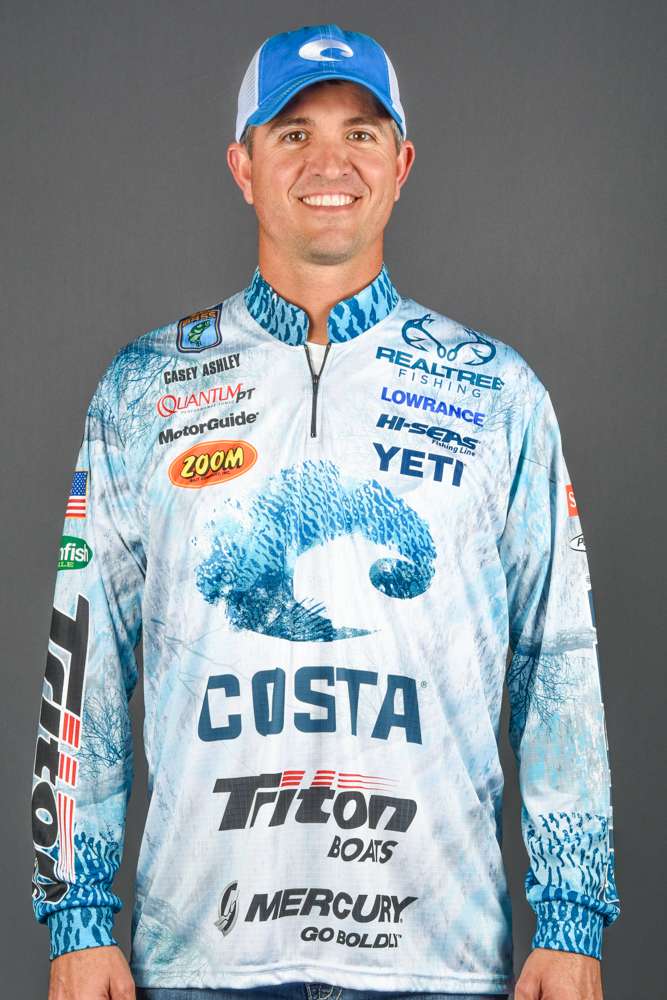
One of the reasons I’m looking forward to BASSFest is that it takes place on a lake I’ve never fished — Texoma. I’ve heard a lot about this big lake on the border of Texas and Oklahoma, but the fact that I know very little about it fits right into my general practice plan.
To put it in one sentence, I think you should focus on what you’re good at.
When you’re practicing on a lake you know or one you don’t know, the one thing you know is what you’re good at. There’s so much you can research on the Internet, and every lake has its little quirks. But if what’s going on at a lake isn’t something you feel confident in, I don’t think you should do it.
In my case, I stick with what I know, and I keep it simple. I don’t get caught up in trying to fit into what the lake demands; I take what I know I’m good at and then I try to apply to the lake.
That actually starts with my pre-tournament recon. When I look at a lake map, I try to pick something that looks similar to something I fish at home. For example, I may have a favorite creek arm on my home lake, so I’ll pick a spot on the new lake that’s laid out a lot like that creek arm, and that’s where I’m going to start my practice.
I’ll start there, and if it doesn’t look appealing once I arrive, I’ll ride and jump around the lake until I find something that fits what I’m looking for.
I think you need to try to see as much of the lake as possible, but you don’t need to run here and fish five minutes, run here and fish 10 minutes. You need to pick the stuff you’d fish on your home lake until you find what you’re looking for.
Different anglers may like different things. Some guys might like bushes, some guys may love docks, some guys may love channel swings, bluffs or rocks. Most of the places you go, you can find something to relate to.
Occasionally, we fish a lake that’s a totally different creature than anything I’ve seen. In that case, I try to find some element that’s similar to a type of habitat that I’m familiar with.
Take last year at Lake Havasu. That lake is unlike anything else I’ve ever fished. It’s mostly a barren lake with not much shoreline.
But I noticed that Havasu fishes a lot like Lake Russell back home in South Carolina. The only difference is that Lake Russell has a lot of standing timber, but Havasu had a lot of manmade structure that were like fishing brush piles. That made it easier to break down that lake.
Along with looking for the types of layouts and habitat that I’m familiar with, I think it’s important to practice with baits that I know I can use effectively.
I’m a shallow water fisherman at heart. I love looking through my Costa polarized lenses to locate targets where I can fish a jig. In the summertime, I love fishing topwaters. That could be walking, popping, frogging or buzzbaits. I know I’ll put in the time and effort to fish these baits effectively.
I may need to pick up other baits now and then, but the biggest mistake you can make heading into practice is going off information you get off the Internet. For example, take our recent Elite tournament at Toledo Bend. Based on what you read about this lake, you know that a lot of it is offshore fishing with big crankbaits, football jigs and things like that.
That may be how the tournament was won, but if you look at what else happened in that tournament, your shallow water flippers and froggers did really well because they didn’t take any of the other stuff into consideration.
You go out and stick with what you know and do what you’re good at, and that’s what brings you through tournament to tournament and keeps you consistent in breaking down lakes you don’t know.
I look at the guys I idolized when I was coming up, even before I started tournament fishing — Tommy Biffle, Denny Brauer, KVD. Tommy and Denny were really good at flipping, whether it was wood, bushes or docks, they were going to find something that they could relate their skills to.
Wherever Kevin goes, whether it’s Florida or Kentucky Lake, he’s a cranker. That’s what he’s going to stick with. He may not win every one, but he does well.
That’s why I believe that if you stick with what you know and what you have the most confidence in, you’ll find something you can apply to wherever you fish.
That’s my practice plan. We’ll see how it works on Lake Texoma.

